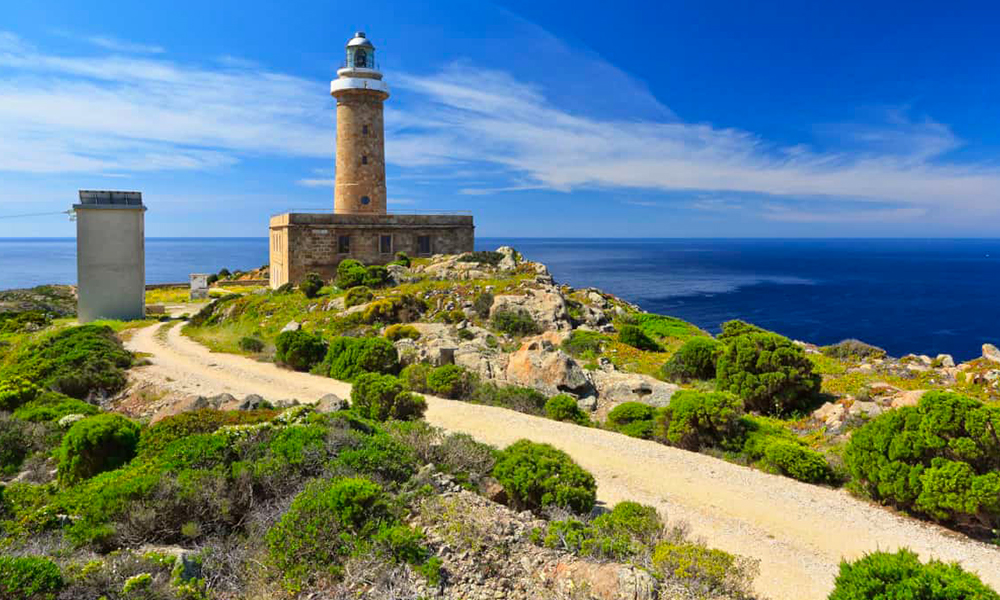Mitsubishi Electric contributes to innovative European REACT project

Islands are highly dependent on the mainland energy market, and the traditional power grid model poses several barriers to these areas by impacting their security of energy supply and affecting energy costs with increases of up to 400% over the national market price. That is why it becomes critically important to predict, control and manage variable load profiles with energy storage and renewable energy generation technologies. To meet this need, the REACT project, in which Mitsubishi Electric is participating with its heat pumps and Cloud connectivity solutions, was born.
REACT is a four-year research project funded by the EU's Horizon 2020 program, whose goal is for islands to achieve energy independence by combining RES and storage systems with a Demand-Response platform for optimal management of energy consumption and involving users in a local Energy Community.
The technical and business model developed in REACT will show that these technologies can lead to important economic benefits, contribute to the decarbonization of local energy systems, reduce greenhouse gas emissions, and improve ambient air quality.
The island of San Pietro was chosen for Italy, which represents one of the two main islands of the Sulcis archipelago in the southwestern part of Sardinia. San Pietro has an area of 51 km² and about 6 100 inhabitants mainly concentrated in the town of Carloforte, the only inhabited center of the island. The pilot project currently has 20 residential dwellings, 1 Hotel and 8 pre-selected municipal buildings participating.
The energy needs of the municipal area have an average annual energy demand close to 16 GWh, with a peculiar feature of fluctuating energy consumption during the summer season, due to the large influx of tourists to the island (up to 6/7 times the number of residents).
The cooling, and eventually the air heating, of the buildings involved in the Italian REACT demonstration pilot have been entrusted to Mitsubishi Electric, which has supplied its heat pumps of which 15 air-to-air are currently used in the private buildings, an air-to-water model has been installed at the island's sports center that is used for the production of hot water for the locker rooms while a VRF system is in use at the village library. The heat pumps receive electricity through the virtual smart grid managed by the Demand-Response platform, to the development of which Mitsubishi Electric MERCE also contributed.
"We enthusiastically joined the REACT project because we believe that Energy Communities represent a viable and exportable solution across the continent with important economic benefits for the whole country. The pilot we are pursuing will serve to demonstrate how it is possible to contribute to the decarbonization of local energy systems, reduce greenhouse gas emissions, and improve air quality," said Enzo Ferloni, Technical and Special Projects Manager at Mitsubishi Electric.
Project implementation is made possible through the participation of R2M, an independent and self-funded company whose mission is to facilitate the development of technologies, products, services, and projects in the science-technology field.
"We are coordinating the field experimentation, which is based on the innovative use of a technological platform at the service of the local community that, by exploiting various green technologies, at the same time enables the generation of energy efficiency, the reduction of energy consumption, including through the decentralization of production, also employing, accumulation and storage systems to optimize the use and waste of energy," said Omar Caboni of R2M.
REACT involves a total of 23 partners from European companies and research centers with the aim of developing integrated technological solutions to serve RECs, Renewable Energy Communities. The synergy of innovative devices and installed technologies interact with each other and thanks to the use of specific Apps for energy management, will allow the users of the Renewable Energy Community of Carloforte to save from 25-30% up to 50% on their bills each year, depending on the number (and type) of users involved in the CER.